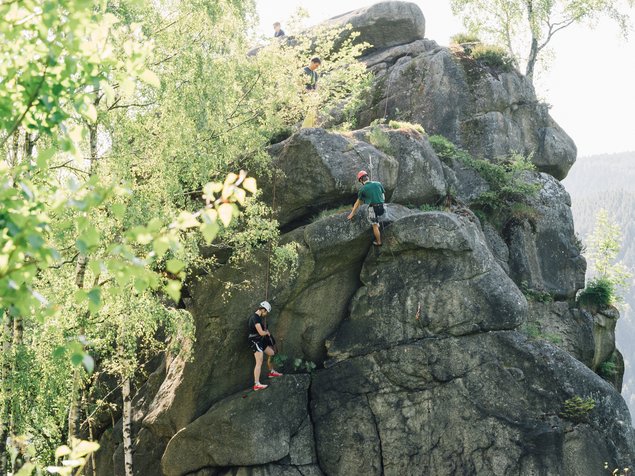Clausthal University of Technology is located in Germany's northernmost low mountain range, the Harz Mountains. The highest point is the Brocken at 1141 meters. The region is also characterized by its numerous lakes and reservoirs. Nature offers a wide range of outdoor activities such as sailing, mountain biking, free climbing and cross-country skiing in winter.
With more than 4000 students and 1100 employees, Clausthal University of Technology is an economic and social hub in the district of Goslar. Formerly characterized by mining, the western Harz region now also focuses on tourism. For example, the Rammelsberg Mining Museum, just outside Goslar, is a UNESCO World Heritage Site, as is the Upper Harz Water Management System around Clausthal-Zellerfeld. Another place to visit is the Harz National Park, which was formed in 2006 as Germany's first transnational national park from the two existing national parks Harz (Lower Saxony) and Hochharz (Saxony-Anhalt).
Clausthal's surroundings are characterized by forests, ponds and mountains. The Harz offers fantastic opportunities for hikers, mountain bikers, canoeists, climbers and winter sports enthusiasts. If you are less interested in sports, you can lie down at one of the many ponds of the Upper Harz Water Regal in summer, bathe in clean water, enjoy a barbecue and relax.
Source of the technology
UNESCO has declared the Upper Harz water system, considered a masterpiece of early mining and engineering, a World Heritage Site, thus recognizing it as one of the world's largest pre-industrial energy supply systems. A large part of the water management system, which has been a listed building for decades, still exists and functions to this day. Since 2010, the "university in the countryside" has thus had another unique selling point due to its location: "University in the middle of a world cultural heritage site".



